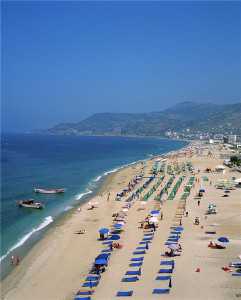MP: NATO Radar System in Turkey makes Iranian nation unhappy
 Ankara, Nov 19, IRNA – Head of Majlis National Security and Foreign Policy Commission in a meeting with Turkish Foreign Minister Ahmet Davutoglu here said that installation of NATO Radar System in Turkey has made Iranian nation unhappy.
Ankara, Nov 19, IRNA – Head of Majlis National Security and Foreign Policy Commission in a meeting with Turkish Foreign Minister Ahmet Davutoglu here said that installation of NATO Radar System in Turkey has made Iranian nation unhappy.
MP: NATO Radar System in Turkey makes Iranian nation unhappy
In the meeting which took place in Istanbul on Saturday evening Allaeddin Boroujerdi expressed pleasure with bilateral cooperation and increase of commercial level to 15 billion dollars per year.
However, he added that the installation of NATO Radar System in Turkey will create insecurity in the region.
He also criticized Arab League decision on Syria and said while people of Yemen and Bahrain are oppressed and mosques are being demolished in Bahrain by al-Khalifa, the Arab League has been silent, but under pretext of defending people’s rights has suspended Syrian membership.
Boroujerdi continued that the US and the Zionist regime have been trying for many years to eliminate political structure of Syria because of its neighborhood with the Zionist regime and also being the axis of resistance.
The Iranian MP stressed that implementing reforms in Syria is necessary and the Syrian officials have accepted that, but it should be done in a peaceful atmosphere and establishment of resistance army and armed struggle will prevent it.
The Turkish foreign minister said that Turkey is opposed to the west and NATO interference in Syria and if conflicts end in the country and reforms begin, his country will support Syria again.
Davutoglu added that Turkey has done enormous efforts to settle problems in Syria and now is awaiting Syria’s answer to Arab League proposal. He expressed hope that Syria by accepting the proposal ends the crisis.
Referring to bilateral relations between the two countries, the FM expressed pleasure with promotion of economic cooperation and said that Ankara never allows any country to use the missile shield radar system against Iran.
Davutoglu also supported Iran’s peaceful nuclear activities.
1391**1771
Islamic Republic News Agency/IRNA NewsCode: 30671117
via MP: NATO Radar System in Turkey makes Iranian nation unhappy.


